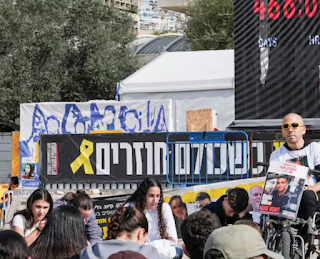The ongoing Israeli-Palestinian conflict has deeply shaped the region’s geopolitical landscape, with historical, religious, and territorial disputes dating back to the early 20th century. The roots of the conflict stem from the differing national aspirations of Jews and Arabs in the land historically known as Palestine. Following the establishment of Israel in 1948, wars and subsequent military occupations have fueled the deep divides between the two communities, with each side laying claim to the same land.
The rise of Hamas in the mid-1980s marked a significant shift in Palestinian resistance, as the group, founded as an offshoot of the Muslim Brotherhood, advocated for an Islamic state in the region and rejected negotiations with Israel. Over the years, the militant group has gained substantial support among Palestinians, particularly in Gaza, where it won a majority in the 2006 Palestinian legislative elections. Despite facing harsh opposition from both Israel and the Palestinian Authority, Hamas has solidified its grip on Gaza, overseeing its internal governance and military activities.
This control has led to a series of conflicts with Israel, the most recent being the outbreak of violence in October 2023, which saw over 1,200 Israeli civilians and soldiers killed in a Hamas-led attack, as well as the abduction of more than 250 hostages. Israel’s response was swift and extensive, launching airstrikes and a ground invasion, which, in turn, led to heavy civilian casualties and widespread destruction in Gaza.
The situation in Gaza is dire, with over 46,000 deaths reported since the conflict began, most of them civilians. The ongoing military operations have decimated much of Gaza's infrastructure, including hospitals, schools, and homes. The majority of Gaza’s 2.3 million residents have been displaced multiple times, seeking refuge in makeshift camps while enduring constant bombardment.
The international community, including organizations like the United Nations, has been deeply concerned about the humanitarian crisis in Gaza. The conflict has also drawn in regional players, such as Iran and its proxies, including Lebanon's Hezbollah and armed groups in Iraq, complicating an already volatile situation. The involvement of these external actors highlights the broader regional implications of the conflict, including the growing tension between Sunni-majority nations like Saudi Arabia and Shiite-majority Iran.
The ceasefire agreement, though fraught with challenges and opposition from various factions, offers a glimmer of hope for a temporary halt to the violence. Under the terms of the deal, Hamas will release 33 Israeli hostages in exchange for Israel’s release of Palestinian prisoners. This first phase, scheduled to begin on January 19, 2025, will also see the gradual withdrawal of Israeli troops from Gaza, allowing for the flow of humanitarian aid into the beleaguered enclave. However, the deal has not been without controversy, particularly within Netanyahu’s coalition, where hardliners have opposed any concessions to Hamas, viewing them as a weakness.
Despite the political wrangling and uncertainties surrounding the deal’s final approval, the potential release of hostages offers a small victory for families who have endured months of anguish. Families of the hostages have pleaded with the Israeli government to ensure the swift implementation of the agreement, with hopes that it could pave the way for further negotiations and, eventually, a more lasting peace. However, with the conflict’s history of broken ceasefires and distrust between the parties, the road to peace remains a long and uncertain one.
The situation in Gaza has drawn widespread international concern, with calls for both an immediate ceasefire and a comprehensive peace process. The aid situation is particularly dire, with hospitals overwhelmed, food and medicine shortages, and widespread displacement. The agreement to increase humanitarian aid is a critical part of the ceasefire deal, but it faces logistical challenges, including the need to rapidly scale up the daily supply of trucks carrying aid into Gaza. While international organizations like the World Health Organization are working to coordinate these efforts, the scale of the crisis requires a unified and sustained response from the global community.
In summary, the ongoing conflict in Gaza continues to have devastating consequences for both Israelis and Palestinians, with little hope for a swift resolution. While the recent ceasefire deal offers a temporary respite, it remains uncertain whether it will lead to a broader and more lasting peace or if the cycle of violence will continue. The path forward remains fraught with challenges, both on the ground in Gaza and within the international political arena, as leaders and stakeholders from all sides continue to navigate the complex and deeply entrenched issues at the heart of the Israeli-Palestinian conflict.



